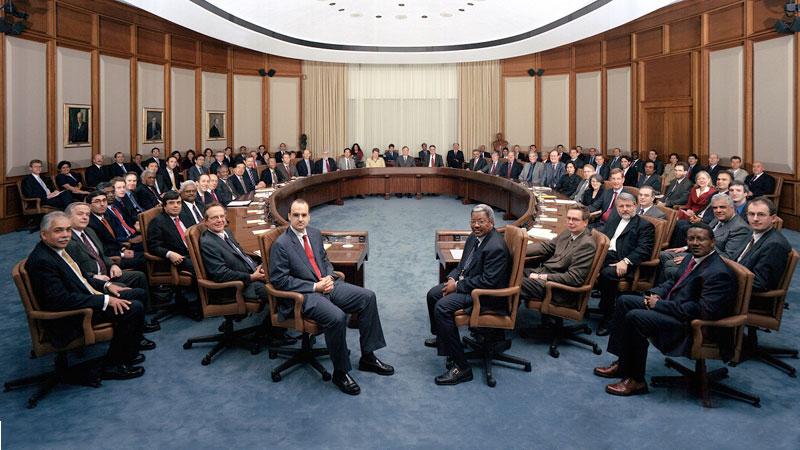
The release of another tranche by the International Monetary Fund (IMF) under the Extended Fund Facility (EFF) program for Sri Lanka is appreciated by economists and the business community as a move that would strengthen the country’s external position, especially, with regard to boosting foreign reserves which had been depleting over the years.
However, economists noted that the country should go beyond short term economic gains and focus on long term challenges to sustain economic growth. The country which had relied on fiscal expansion rather than trade expansion needs to shift its focus on the development of trade to boost economic growth, economists noted.
Senior Professor of Economics University of Colombo, Prof. Sirimal Abeyratne said, in spite of the satisfactory short-term macroeconomic status of the economy, the long-term challenges it faced before continue to haunt the future outlook.
He said, the Sri Lankan economy which has grown over the years, more with fiscal expansion than with trade expansion, has ended up with internal and external deficits (twin deficits) and a resulting debt burden. Until and unless the long-term growth momentum shifts from its fiscal drivers towards trade expansion, the short-term macroeconomic status would remain vulnerable to external shocks.
More importantly, attempts at fiscal consolidation without trade expansion may slow down the growth momentum. Therefore, it is not the time to divert policy focus away from long-term economic prospects that would essentially raise both fiscal management and balance of payments to a healthy position. This is where the more fundamental policy challenge for Sri Lanka is.
In spite of the moderate economic growth in the past few years, Sri Lanka’s macroeconomic position was challenged by dismal performance in its fiscal management and balance of payments, which were worsened further by the increased public debt burden. Thus, Sri Lanka needed a reform agenda for which she received the EFF arrangement.
Reform agenda
The reform agenda included an improvement in fiscal deficit, building up of forex reserves, reduction in debt distress, and improvement in financial management including that of state owned enterprises (SOEs). The EFF also envisaged inflation targeting and a more flexible exchange rate regime.
Prof. Abeyratne noted that on the fiscal side, the satisfactory achievements are more about the proposed tax reforms under the new Inland Revenue Act. As reported, it has been aimed at a more efficient and equitable direct system so that it would improve the tax revenue and reduce the government’s excessive reliance on indirect taxes. The outcome of the proposal is, however, yet to be seen.
“The Central Bank has shifted to a more flexible exchange rate management so that the existing reserve position could be maintained. However, building up a sound forex reserve position depends more on export growth and FDI inflows, where the Central Bank has a small role to play. As far as monetary policy is concerned, it has also focused on inflation targeting and a tightened monetary policy stance. Reforms in the SOE sector are critically important but, despite frequent discussions and rhetoric, there has been no progress,” Prof. Abeyratne said.
On July 17, the Board completed the second review of Sri Lanka’s economic performance under the program supported by a 3-year Extended Fund Facility (EFF) which enables the disbursement of about US$ 167.2 million.
Submission of the new Inland Revenue Act (IRA) to Parliament—the prior action for the second EFF review—was completed in early July . The new IRA will support further fiscal consolidation, make the tax system more efficient and equitable, and generate resources for social and development programs. Further accumulating international reserves and enhancing exchange rate flexibility will help reduce Sri Lanka’s external vulnerability.
The completion of the review enabling the disbursement of the equivalent of SDR 119.894 million (about US$ 167.2 million), brings the total disbursements under the arrangement to the equivalent of SDR 359.682 million (about US$ 501.5 million).
In completing the review, the Executive Board granted a waiver of non observance of the continuous performance criterion on accumulation of external arrears which was missed due to continued difficulties of establishing a payment platform and waivers of applicability of the performance criteria for end-June 2017 on floor of the central government primary balance and the program net official international reserves of the Central Bank of Sri Lanka, given the unavailability of the information necessary to assess observance. The three-year EFF was approved in June 2016 enabling Sri Lanka to obtain US$1.45 billion.
Following the Executive Board’s discussion of the review, Mitsuhiro Furusawa, Acting Chair and Deputy Managing Director, said:
“Sri Lanka’s performance under the Fund-supported program has been broadly satisfactory. Macroeconomic and financial conditions have been stable, despite severe weather events and global market volatility. The authorities launched fundamental income tax reform, undertook meaningful corrective actions to achieve program targets on international reserves, and remain committed to the reform program. Going forward, the reform momentum should strengthen further with greater ownership, building on the progress made so far.
“Fiscal performance has been strong. Targets for the fiscal balance and tax revenue have been met. The new Inland Revenue Act, which has been submitted to Parliament, will support fiscal consolidation, make the tax system more efficient and equitable, and generate resources for social and development programs. Nevertheless, Sri Lanka’s high debt burden and gross financing needs further revenue-based consolidation. Timely progress in structural reforms, including tax administration and energy pricing, will strengthen the platform for durable consolidation.
“Inflation and credit growth remain on the high side. While monetary policy was tightened in March, further tightening is desirable until clear signs emerge that inflation pressures and credit expansion have subsided. While financial soundness indicators remain stable, banks’ capital adequacy ratio has declined due to rapid credit growth. Financial sector supervision should be strengthened, and macro-prudential measures could be deployed to rein in credit growth if needed.
“Continued international reserves accumulation and enhanced exchange rate flexibility, to which the authorities are committed, would reduce Sri Lanka’s external vulnerabilities.
